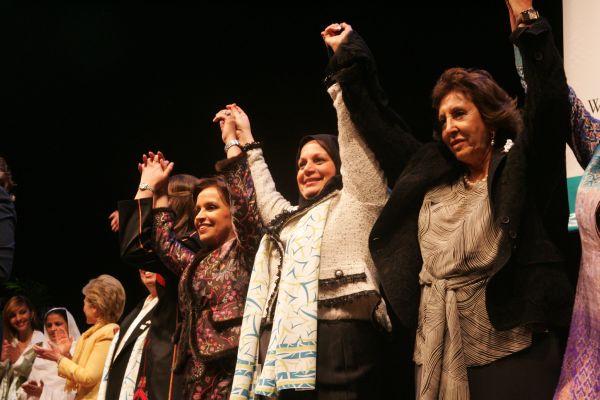
22 Nov What prevents women from participating in politics?

Angela Merkel, Dilma Rousseff, Yingluck Shinawatra, Joyce Banda… Just to name a few of the incumbent female heads of government around the world. Compared to a century ago, women are gaining importance in both international and domestic politics as they are occupying various important positions in national governments and multilateral organizations. While it seems that more and more female politicians are rising in power, let us not be contend with the status-quo: only one-fifth of the seats in the parliaments are occupied by women worldwide, and the figure in Asia, Middle East and Pacific is even lower than the world average. Women, in today’s world, are still underrepresented in the political arena.
What are the major obstacles that women face in political participation? According to studies, it is a complex issue as it can be traced back to a number of institutional, historical, socio-economic as well as cultural factors. UN Women found that in Bhutan, a landlocked country in South Asia, household responsibilities, low self-esteem, illiteracy, few role models and lower expectations were found as the key reasons that stops women from participating in politics (more). Other countries in the region, such as Cambodia, Laos and Myanmar, are likely to face similar situations.
Education, amongst all other factors, is identified as one of the most important causes of the problem that prevents women’s voices from being heard in government. Girls being forced to stay at home to do domestic work, and missing out on schooling, will have lower self-esteem as a result, one of the factors for low political participation. Furthermore, it is the male-dominated nature of politics in most countries that puts a glass barrier against women trying to enter it. More women need to be empowered to speak up in the public sphere. It creates a vicious cycle that the fewer women are inn politics, the more their needs are being unmet; and the more unconfident they are, the less likely they can voice out their opinion in the government.
The imbalanced gender ratio in political participation is one indicator of gender inequality in society: it obscures a more balanced view on policy and development. Many countries are taking initiatives to encourage women to get involved in politics. For example, the parliaments of Rwanda (case study) and some Scandinavian countries mandate quota for women and it is a crucial step to remove institutional barriers for female political participation. While such efforts should be appreciated and it is true that specific laws or policies can be taken as immediate measures to strengthen the political empowerment of women, promoting and improving female education must go in hand to address underlying gender inequality. If women are entitled the same right to education as men, they will have higher self-esteem and we can trust that they will gain their voice back – and make themselves heard by their people, and even the world.


Sorry, the comment form is closed at this time.